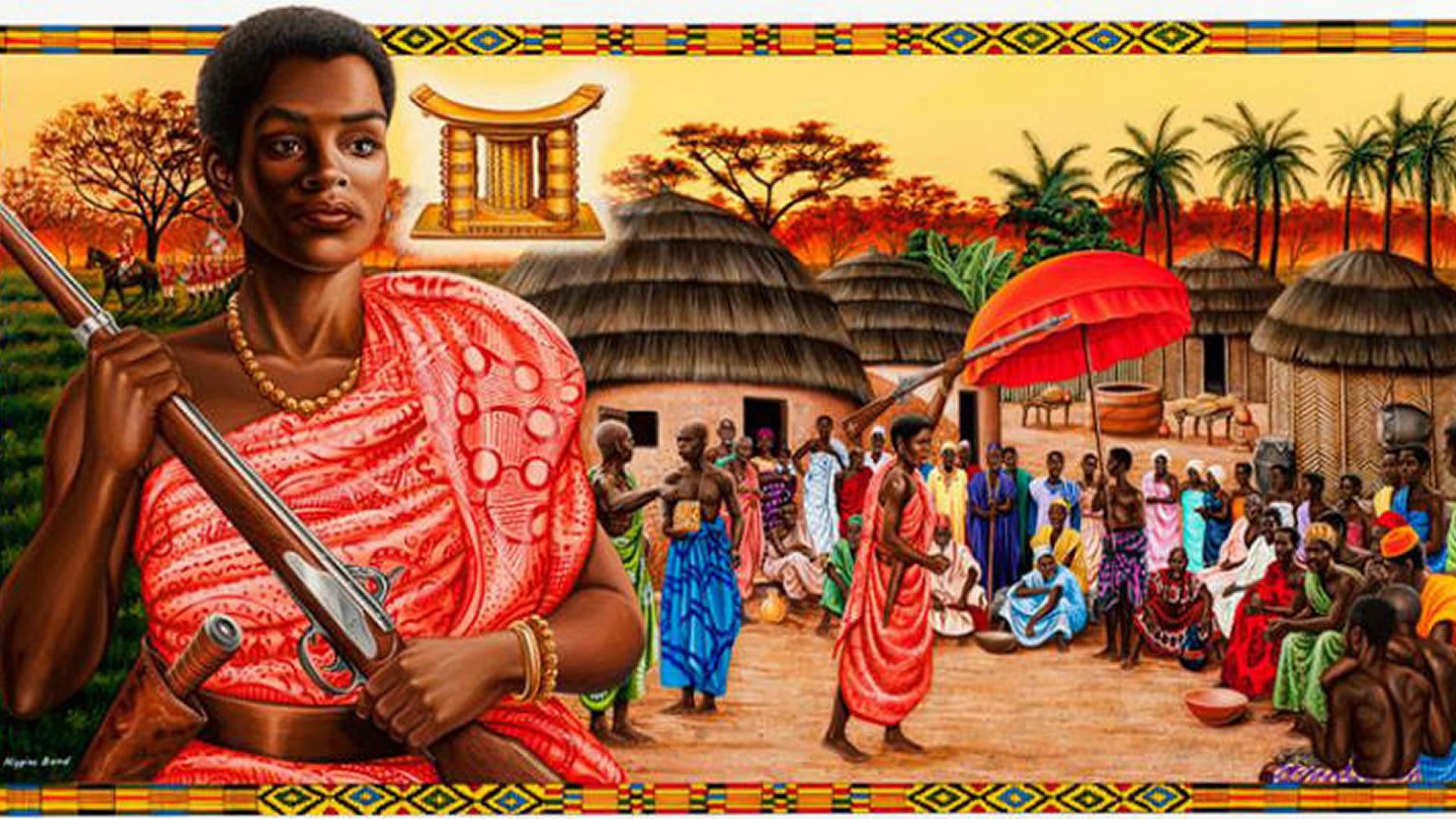
Yaa Asantewaa, the Ashanti Queen Mother who, in the face of British colonial oppression, led her people in the “War of the Golden Stool” in 1900. Her unwavering courage and exceptional leadership played a pivotal role in the resistance against the forces of imperialism.
Yaa Asantewaa, born in 1840, ascended to the esteemed position of Queen Mother of the Ashanti Empire, a matrilineal society in what is now modern-day Ghana. The Ashanti people held the Golden Stool, a symbol of unity and sovereignty, in the highest regard. When the British sought to seize control and undermine the autonomy of the Ashanti Empire, Yaa Asantewaa emerged as a beacon of resistance.
The tension between the Ashanti people and the British colonial forces reached a boiling point in 1900 when the British Governor demanded the Golden Stool as a symbol of Ashanti submission. The Ashanti leaders were divided on how to respond, but Yaa Asantewaa, recognizing the significance of the stool to her people’s identity and sovereignty, rallied her fellow leaders and the Ashanti army for a decisive stand.
In a powerful and impassioned speech, Yaa Asantewaa declared, “Now I see that some of you fear to go forward to fight for our king. If it were in the brave days of Osei Tutu, Okomfo Anokye, and Opoku Ware, leaders would not sit down to see their king taken away without firing a shot.”
Her words resonated deeply, galvanizing the Ashanti people to resist the encroachment of British forces. Yaa Asantewaa’s leadership was not confined to rhetoric; she personally led troops into battle, demonstrating that she was not just a symbol but a fearless commander.
The conflict that ensued became known as the “War of the Golden Stool.” Yaa Asantewaa’s forces fought valiantly against the better-equipped British troops. Although the Ashanti were eventually defeated, Yaa Asantewaa’s indomitable spirit and leadership left an enduring legacy.
Yaa Asantewaa was captured by the British and exiled to the Seychelles, where she passed away in 1921. However, her sacrifice and bravery inspired subsequent generations to continue the fight for independence. Ghana eventually gained its independence from British rule in 1957, and Yaa Asantewaa’s role in the struggle is remembered as a crucial chapter in the nation’s history.
Today, Yaa Asantewaa is celebrated as a national heroine in Ghana, a symbol of resistance, and a testament to the power of leadership in the face of adversity. Her legacy serves as an inspiration for those who continue to fight for justice, equality, and the preservation of cultural identity.
